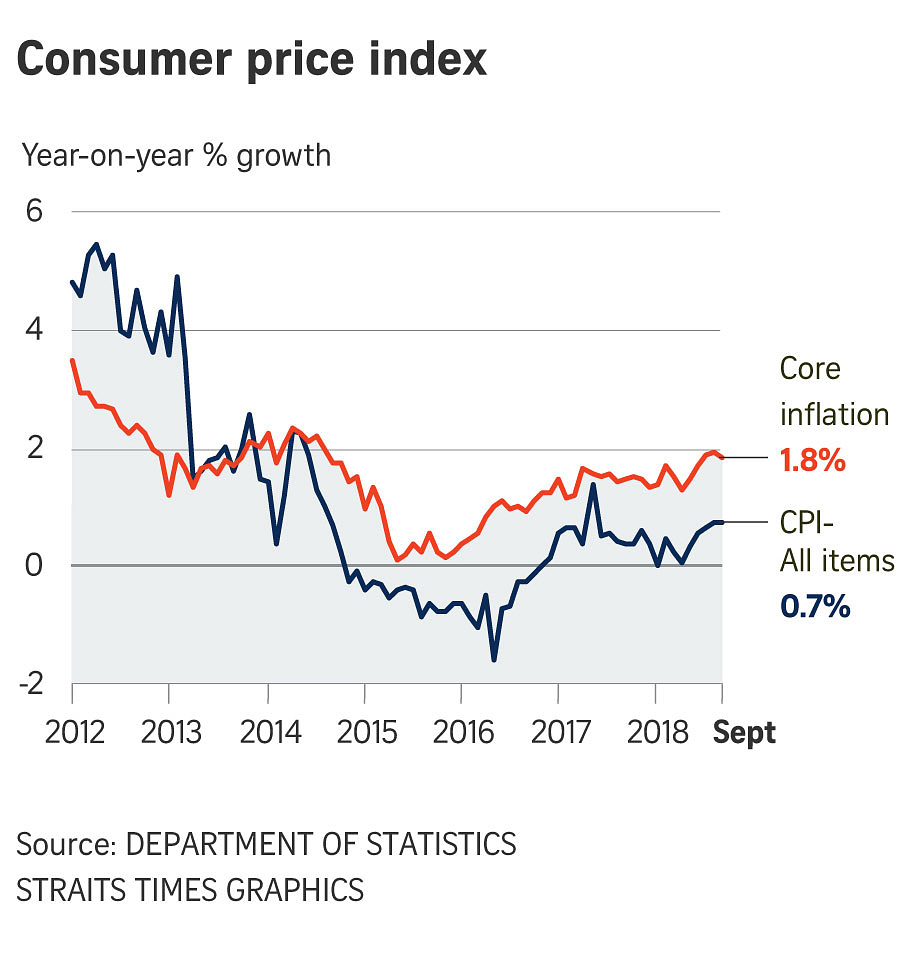SINGAPORE - Singapore's core inflation came in at 1.8 per cent last month, dipping slightly from August's 1.9 per cent.
Meanwhile, the all-items or headline inflation remained unchanged from August, at 0.7 per cent, although the market had expected the year-on-year rise in consumer prices to quicken.
Inflation also came in below market expectations with analysts predicting core inflation at 1.9 per cent and headline inflation at 0.8 per cent, according to a Bloomberg poll.
Core inflation strips out accommodation and private road transport costs, which are not everyday transactions for most Singaporeans and are more affected by government policy.
The decline in core inflation came from slower growth in retail prices of items like clothing and shoes which offset the higher price increases in services, said the Ministry of Trade and Industry (MTI) and the Monetary Authority of Singapore (MAS) in a joint statement.
Retail items rose by 1.5 per cent year on year - slowing from the 2 per cent increase previously. There was also a steeper fall in the prices of recreation and entertainment goods, and telecommunication equipment.
Services, on the other hand, went up by 1.4 per cent in September, slightly higher than the 1.3 per cent in August. This was due to a larger increase in education services fees and a smaller decline in telecommunication services fees.
Food prices, led by an increase in restaurant meals and non-cooked food items, moderated to 1.6 per cent in September from 1.7 per cent in August.
There was also a smaller decline in accommodation costs, including rents. Accommodation costs fell by 2.5 per cent in September, easing from the 2.6 per cent decline in August.
Private road transport costs also fell by 0.1 per cent last month, compared to the previous month's 0.2 per cent decline.
Looking ahead, MAS and MTI said imported inflation is likely to increase on account of higher global oil and food prices.
While domestic demand is expected to strengthen further, the higher import and labour costs could be reflected in consumer prices.

"However, the extent of overall price increases will be capped by greater market competition in several consumer segments, such as telecommunications, electricity and retail," said MAS and MTI.
MAS and MTI expect core inflation to average in the upper half of the 1 per cent to 2 per cent forecast range for the full year.

